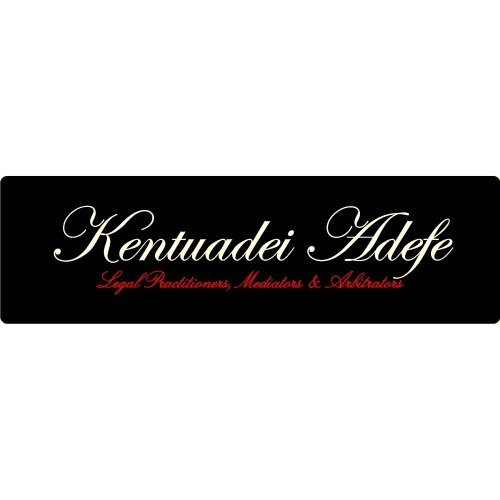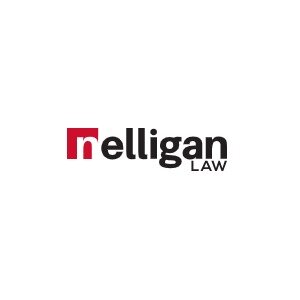Best Government Relations & Lobbying Lawyers in Ottawa
Share your needs with us, get contacted by law firms.
Free. Takes 2 min.
List of the best lawyers in Ottawa, Canada

KENTUADEI ADEFE, FOREIGN LEGAL CONSULTANT ON NIGERIAN LAW
15 minutes Free ConsultationAbout Government Relations & Lobbying Law in Ottawa, Canada
Government Relations and Lobbying law in Ottawa, Canada, involves the strategies and activities employed by individuals or organizations to influence public policy, government actions, or legislation. Ottawa, as the capital city of Canada, is a central hub for political activities and houses many government departments and agencies. Lobbying is an integral part of the democratic process, ensuring different stakeholders can voice their concerns and contribute to policy development. However, this activity is regulated to promote transparency, prevent corruption, and ensure fair access to decision-makers.
Why You May Need a Lawyer
Engaging in Government Relations and Lobbying can be complex due to the intricate legal framework governing these activities. Here are some common situations where legal advice may be required:
- Navigating the registration and compliance requirements for lobbyists under both federal and provincial laws.
- Understanding the limitations and ethical boundaries of lobbying activities to avoid any legal infractions.
- Drafting and reviewing contracts or agreements related to lobbying services.
- Defending against allegations of improper lobbying activities or violations of lobbying laws.
- Guidance on the permissible scope of gifts and hospitality offered to public office holders.
- Advising on strategic communication to effectively advocate for policy changes or new legislation.
Local Laws Overview
In Ottawa, Government Relations and Lobbying are primarily governed by the Lobbying Act, enforced by the Office of the Commissioner of Lobbying of Canada. This legislation outlines registration requirements, codes of conduct, and penalties for non-compliance. Key aspects include:
- Registration: Lobbyists must register and disclose their activities, clients, and targets of lobbying.
- Code of Conduct: There is a code of conduct that dictates how lobbyists should behave, emphasizing integrity, professionalism, and transparency.
- Prohibition on Contingency Fees: It's illegal for lobbyists to receive a payment contingent on the success of their lobbying efforts.
- Communication Reporting: Lobbyists must report any oral or arranged communications with certain designated public office holders.
- Lobbying Restrictions: Certain individuals, such as former public office holders, may face restrictions on lobbying activities for a specific period after leaving office.
Frequently Asked Questions
What is lobbying?
Lobbying involves communicating with government officials to influence legislation, policy, or administrative decisions. It can be conducted by individuals or organizations.
Who needs to register as a lobbyist?
Anyone paid to communicate with public office holders, influencing public policy or program decisions, typically needs to register under the Lobbying Act.
Are there different types of lobbyists?
Yes, the law categorizes lobbyists into two main types: consultant lobbyists, who are paid to lobby on behalf of clients, and in-house lobbyists, who lobby on an organization's behalf.
What activities are considered lobbying?
Lobbing can include direct communications such as meetings, written correspondences, and arranged conversations attempting to influence government policy or decisions.
What happens if a lobbyist doesn't register?
Failing to register or comply with lobbying laws can result in administrative and criminal penalties, including fines and potential imprisonment.
How often must lobbyists update their registrations?
Lobbyists are required to file monthly communications reports and promptly update any changes in their registration details to remain compliant.
Are there rules about gifts and hospitality given to officials?
Yes, lobbyists must adhere to strict rules to prevent any perception of undue influence. Gifts and hospitality must comply with the ethics code stipulated under the Lobbying Act.
Can lobbying be done anonymously?
No, transparency is crucial in lobbying, and all activities must be disclosed and properly registered under the applicable laws.
Are there any exemptions from the Lobbying Act?
Certain activities, such as grassroots communications aimed at influencing public opinion or technical briefings at a request of a government, may be exempt under the act.
How long does the lobbying ban last for former government officials?
Former designated public office holders are subject to a five-year prohibition on lobbying any federal government department or office.
Additional Resources
If you're looking for more information or need further assistance, consider reaching out to the following resources:
- Office of the Commissioner of Lobbying of Canada: Provides guidance on legal obligations and maintains the Registry of Lobbyists.
- Canadian Bar Association: Offers a directory of qualified lawyers specializing in Government Relations and Lobbying.
- Public Affairs Association of Canada: A professional association that supports practitioners in the field of public affairs and lobbying.
- Government of Canada's Legal Services: Offers assistance and resources regarding interpretation and compliance with government regulations.
Next Steps
If you find yourself needing legal assistance in Government Relations & Lobbying, consider taking the following steps:
- Consult with a Lawyer: Seek professional legal advice to understand your obligations and rights under federal and provincial lobbying laws.
- Review Applicable Laws: Familiarize yourself with the Lobbying Act and related legal statutes to better understand the landscape.
- Prepare Documentation: Gather any relevant documentation, including communication logs and contracts, to assist your lawyer in assessing your situation.
- Engage with Professional Associations: Consider joining groups like the Public Affairs Association of Canada to access resources and networking opportunities.
Legal guidance in this complex field is invaluable for ensuring compliance and effective advocacy, representing your interests effectively within the regulatory framework in Ottawa.
Lawzana helps you find the best lawyers and law firms in Ottawa through a curated and pre-screened list of qualified legal professionals. Our platform offers rankings and detailed profiles of attorneys and law firms, allowing you to compare based on practice areas, including Government Relations & Lobbying, experience, and client feedback.
Each profile includes a description of the firm's areas of practice, client reviews, team members and partners, year of establishment, spoken languages, office locations, contact information, social media presence, and any published articles or resources. Most firms on our platform speak English and are experienced in both local and international legal matters.
Get a quote from top-rated law firms in Ottawa, Canada — quickly, securely, and without unnecessary hassle.
Disclaimer:
The information provided on this page is for general informational purposes only and does not constitute legal advice. While we strive to ensure the accuracy and relevance of the content, legal information may change over time, and interpretations of the law can vary. You should always consult with a qualified legal professional for advice specific to your situation.
We disclaim all liability for actions taken or not taken based on the content of this page. If you believe any information is incorrect or outdated, please contact us, and we will review and update it where appropriate.








